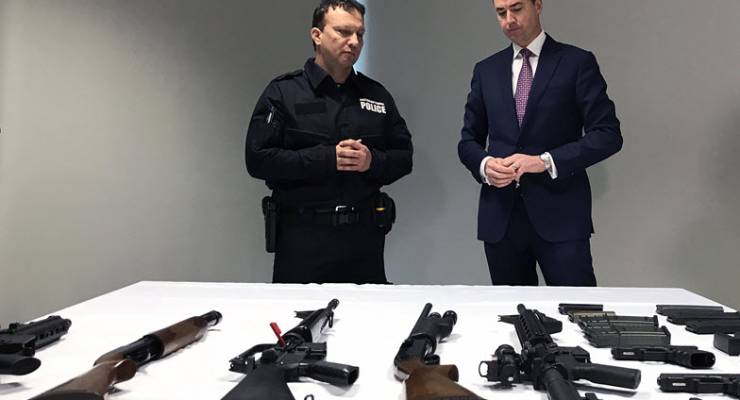
Prime Minister Malcolm Turnbull has suggested Australian gun laws could be tightened, warning against a “set and forget” mentality when it comes to firearms and national security. However, experts and lobbyists warn that Turnbull’s message doesn’t get to the complexity of the issue.
Along with today’s announcements that the government would seek to introduce a facial-recognition database and a 14-day detention period without charge, Turnbull has defended the legacy of predecessor John Howard.
“Thanks to the strong leadership of John Howard more than 20 years ago, and in the wake of the Port Arthur massacre, Australia has some of the strictest gun control laws in the world and we remain ever vigilant to maintain them,” Turnbull said yesterday, in response to the Las Vegas massacre.
“We must constantly improve our laws and our techniques to stay ahead of those who seek to do us harm.”
The statements come as Australia’s federal and state governments will discuss counter-terrorism at the Council of Australian Governments meeting on Thursday, while the national gun amnesty helmed by Justice Minister Michael Keenan finished on the weekend.
While the final numbers of illegal guns collected is not yet known, experts are warning that amnesties, and Australia’s firearm policies, do not go far enough to reduce the number of illegal guns in the community. The number of illegal guns in Australia is unknown, but was last year estimated by the Australian Criminal Intelligence Commission at up to 600,000.
In the first two months of the three month amnesty, almost 26,000 firearms were handed in around the country, mostly in New South Wales.
Crackdowns aren’t enough: expert
But violence prevention expert Samara McPhedran says the government needs more holistic solutions to target high risk individuals with illegal firearms.
“In Australia our first response is always gun laws and that where our debate begins and ends, which is sad.”
McPhedran says evidence from other countries shows that combating gun violence needs to look at broader socio-economic factors, like a lack of educational opportunities, employment opportunities, and other issues when trying to decrease the number of illegal guns in the community, and violence associated with that.
“When you look at other countries the debate is not about who can legally own guns, but you also need to have a strong emphasis on detecting and disrupting criminal activity.”
She says there are broader correlative factors when it comes to gun violence, and some effective responses involve local police, social workers and health workers and can be tailored to specific geographic areas. “What other countries do is recognise that gun violence doesn’t occur in a vacuum so they try to address the broader context in which not only gun violence, but other violence occurs.”
“A law and order element is crucial to any star but it is just one part, but it’s not the only response we need to be implementing.”
Her comments echo a recent comment piece in The Washington Post, which argues that three key social groups in the US are most likely the victims of gun violence, and their unique situations need to be managed: older men committing suicide, young men in street crime and women dealing with domestic violence.
Advocates for gun owners in Australia, including the Shooters, Fishers and Farmers Party’s Jeff Bourman, believe the gun amnesty should be permanent, and that more resources should go into tackling crime than regulating recreational gun owners.
“I can’t understand why there’s not one [a national gun amnesty] already,” Bourman told Crikey, but he doubts its effectiveness at targeting criminals who won’t give up their weapons. Unlike American advocates for firearm ownership, Bourman is in favour of controls, saying “I like having to get a licence, I like having to store your guns in a case,” but he adds that red tape and regulations don’t fix issues with gun crimes. “The people who are administering the red tape could be used to track down criminals.”
UPDATE: Samara McPhedran has previously been Chair of Women in Shooting and Hunting.








Well said , Jeff Bourman. Licensing is good, and 28 days is a great cooling down period.
Did McPhedran mention her close association with the Shooters Union and Sporting Shooters of Australia? Seems relevant.